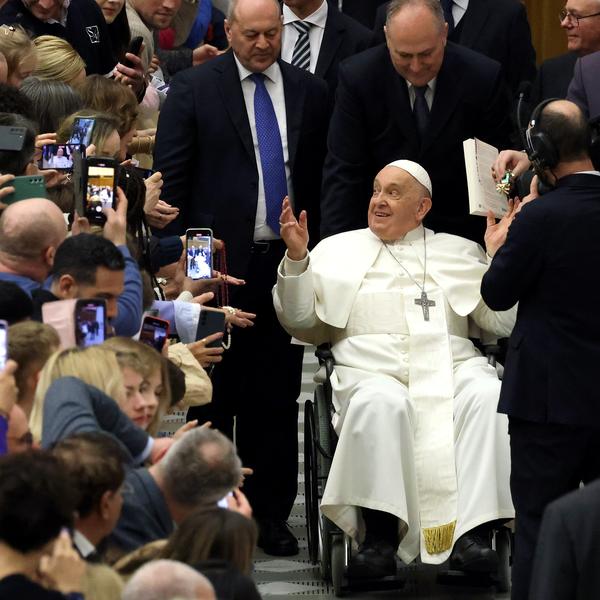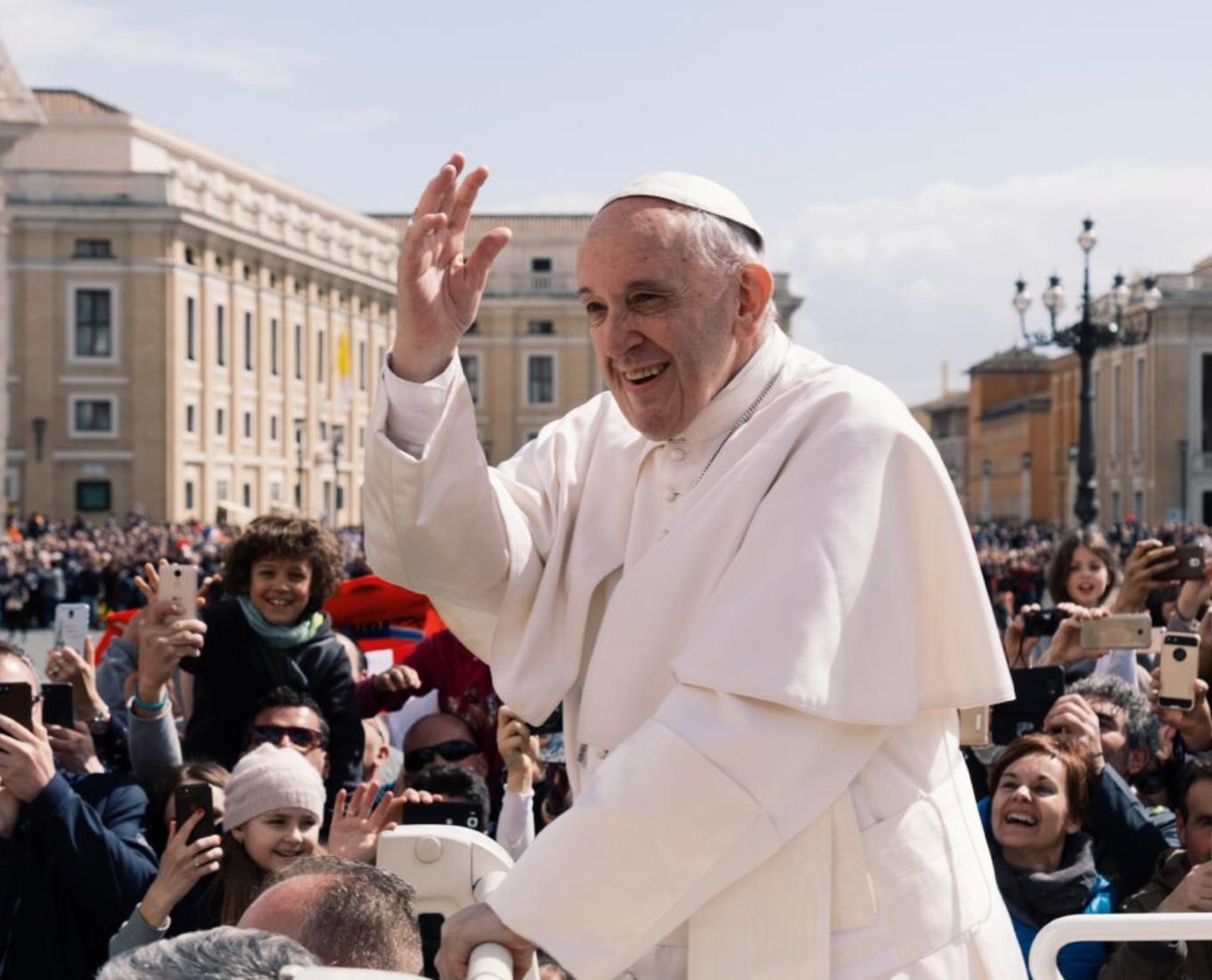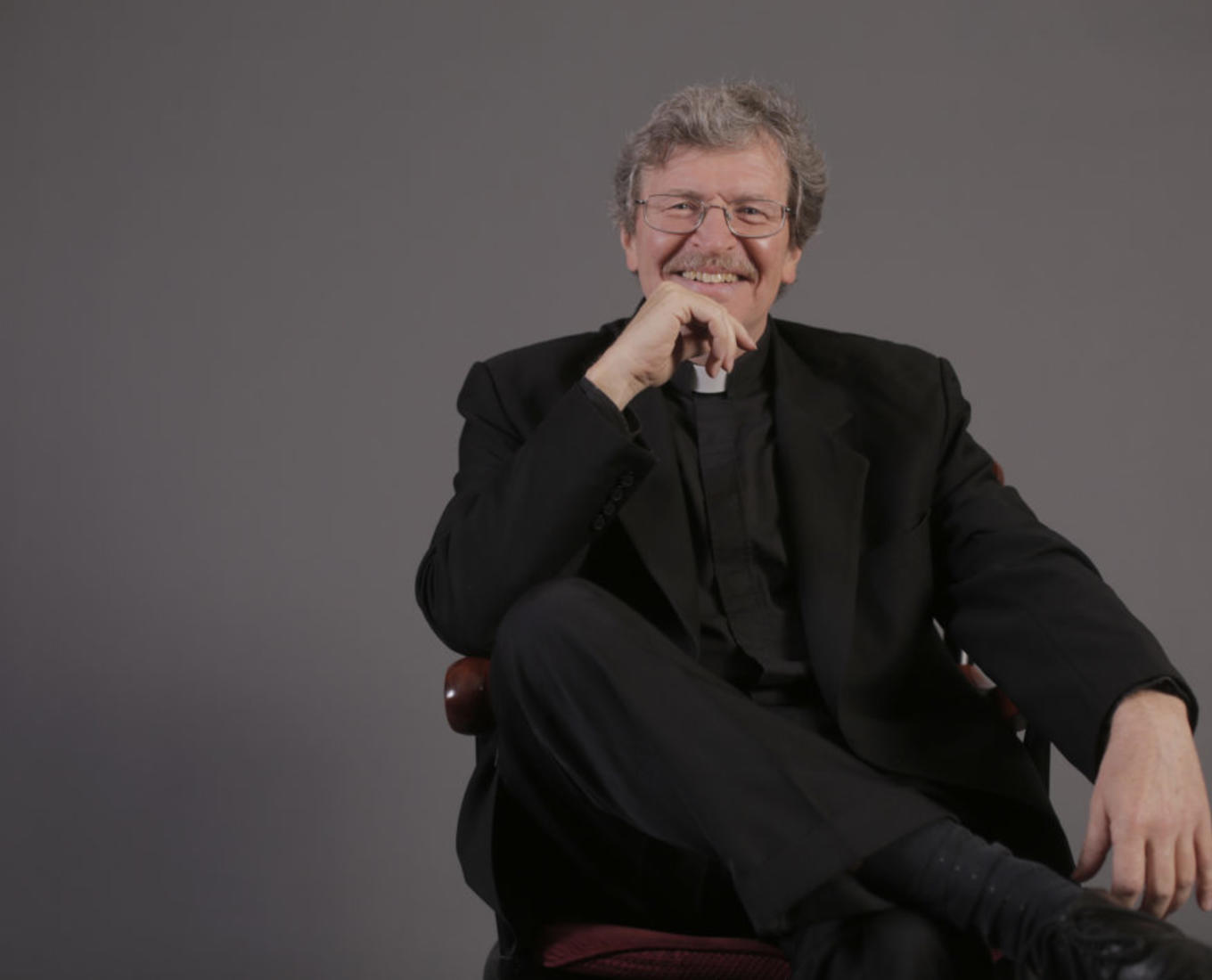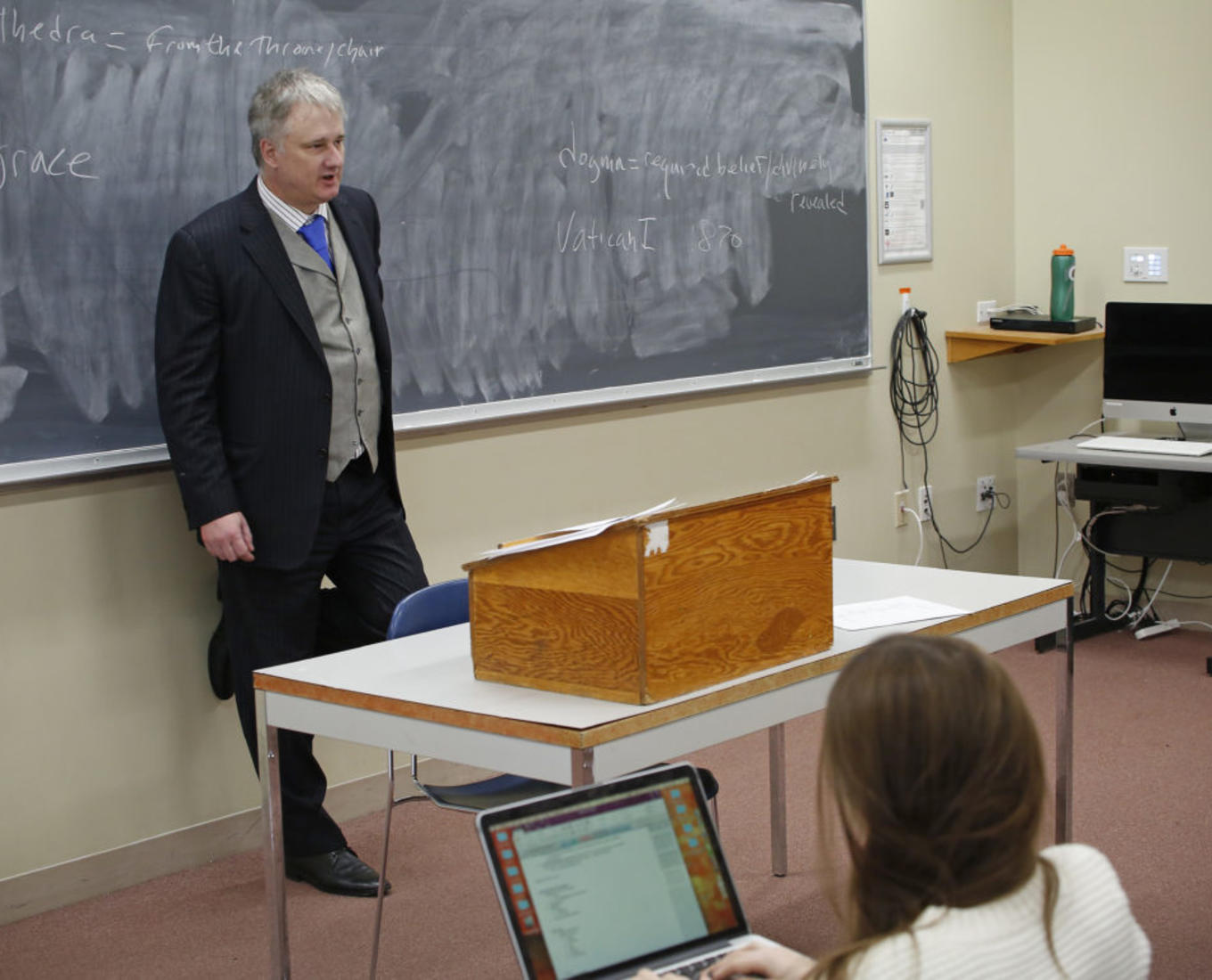Announcements from Rome in relation to two hot-button issues within the Catholic Church made for an eventful end to 2023, setting the stage for 2024 to be a year to focus on the diversity of the church and create a more inclusive environment for discernment and debate.
"There are real fault lines that do bode for the conflict in the future, but this also means that we’re actually talking about things that we’ve been previously forbidden to discuss. This can be positive," said the Rev. William Clark, S.J., professor of religious studies.
In December, with Pope Francis’s approval, the Vatican issued a declaration on the pastoral meaning of blessings, Fiducia Supplicans, which clarified that there is a “possibility of blessing couples in irregular situations and same-sex couples without officially validating their status or changing in any way the Church’s perennial teaching on marriage.”
Fr. Clark and Mathew Schmalz, professor of religious studies, agree that by allowing parish priests to give blessings to couples who are not considered married according to Church teaching they are encouraging a greater level of engagement with the lives of ordinary Catholics.
"This brings the Catholic Church into direct engagement with those who have been marginalized," Schmalz said. "Blessings are requests for God’s mercy, for love and care, so [they] can be applied in a variety of different circumstances that go beyond simply marriage or romantic couplings."
The decision equips priests with the necessary pastoral tools to meet people where they are, to respond to parishioners and create a warm, inclusive and welcoming environment, which shows God’s mercy, Schmalz said.



